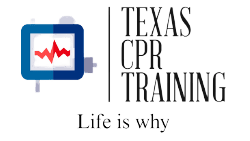
Congenital Heart Defects
Congenital heart defects are the most common birth defects in the U.S. Approximately 40,000 American babies are born with a heart defect.
There are a variety of reasons a child is born with a heart defect. These defects develop in the early weeks of gestation and may already be formed before the mother even knows she is pregnant, and can be caused by a medical condition of the mother or changes in the genes or chromosomes within the child. Medical conditions of the mother that may cause a heart defect include diabetes, phenylketonuria, obesity, rubella, or lupus.
Genes and Chromosomes
Genes are a part of the cells in your body that contain the master plan for how the body will grow and work. Chromosomes are the structure where those genes are stored. When a child is conceived both the mother and father pass on genes to the baby. Genetic research has found nearly 40 genetic mutations that cause a child to develop a heart defect. Around 3 in 10 babies that are born with a heart defect are also born with a genetic condition or a chromosomal condition such as down syndrome.
Acute congenital heart defects are typically diagnosed while the baby is still in the womb or shortly after birth. Your OBGYN listens for abnormal heart rhythms during all of your ultrasounds. If your doctor feels it is necessary they may perform a fetal echo test to check your child’s heartbeat when you are 18 to 22 weeks pregnant.
Screening
Once your bundle of joy arrives he or she will undergo newborn screening. Newborn screening is a series of tests that check for rare but serious medical conditions. Every state requires newborn screening however not all states require CCHD screening. It’s best to check with your hospital to see if they include CCHD screening and if not request it.
The method in which your child will be screened for CCHD is through a simple pulse oximetry test. Using either a foot or a toe, your health care provider checks the amount of oxygen in your baby’s blood by using a sensor.
If the pulse oximetry test does not indicate a heart defect, it is still essential for you to look for the signs of a heart defect. Some defects aren’t diagnosed until after you take your baby home.
Symptoms of a heart defect:
- Sweating (especially during feeding)
- Difficulty breathing while feeding
- Abnormal heart murmur (abnormal sounds during heart beats)
- Swollen tummy or legs
- Puffiness around the eyes
- Gray or blue skin coloring
- Abnormal fatigue
- Slow weight gain
Seeing a Healthcare Provider
If your baby exhibits one or more of these symptoms call their health care provider immediately. Your baby’s provider may perform the following tests to look for additional indicators of a heart defect: Physical exam: Your baby’s provider will use a stethoscope to listen to your baby’s lungs and heart to find signs they may have a heart defect.- Electrocardiogram (ECG or EKG): The pace and rhythm of your baby’s heart is recorded to see if one of their heart chambers developed abnormally.- Echocardiogram: Also known as a cardiac ultrasound, this test is an ultrasound of the heart.
The health care provider administering this test can see the heart’s beats, valves, and other components. Not everyone who is diagnosed with a congenital heart defect requires treatment or surgery. Less severe cases call for observation and periodic visits to a cardiologist while more severe cases call for surgery or cardiac catheterization. Although a child with a congenital heart defect may be treated while they are young, they are still at risk for developing additional heart conditions. A few of these conditions are congestive heart failure, pulmonary hypertension, and heart rhythm problems.
Monitoring, medication, surgeries, even perhaps a transplant may be required for those diagnosed with a congenital heart defect. Thankfully modern medicine gives these children the chance not only to survive, but also to thrive.
Congenital Heart Defects links
What are Congenital Heart Defects?
5 Things to Know About Heart Defects
Critical Congenital Heart Disease
Factors That May Lead to a Congenital Heart Defect (CHD)
Newborn Screening
